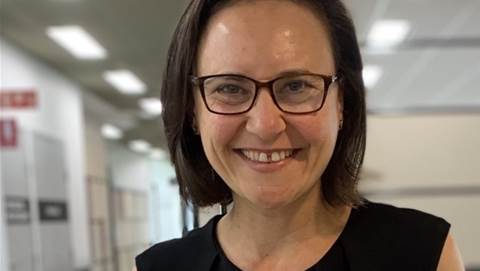The Queensland Government will adopt all of the ICT recommendations handed down in an external audit which offers a scathing assessment of the state’s ICT portfolio.

The State's new IT minister today revealed to iTnews that some of these proposals were to be taken to Cabinet within the next two months.
Former national Treasurer Peter Costello was tasked with leading the Commission of Audit and its review into the Queensland Government’s financial position in March last year.
The Commission was asked to make recommendations on how to strengthen the Queensland economy, improve the state’s financial position and ensure value for money in the delivery of services.
The Commission released its final report earlier this week. It made six specific ICT recommendations. All have been accepted by the government:
- Adopt an ‘ICT as a service’ strategy and source ICT services, especially commoditised services, from private providers;
- Utilise as appropriate cloud based computing and other emerging technologies;
- Discontinue the role of CITEC as a centralised provider of ICT services within government;
- Discontinue the Government's role as an owner and manager of significant ICT assets and systems, with required ICT services to be purchased under contractual arrangements with private providers;
- Implement best practice governance arrangements for the recommended new 'ICT as a service' strategy to ensure that value for money is achieved from this strategy; and
- Have the Chief Information Office work with agencies to re-focus their ICT resources on strategic issues.
The Commission also recommended the government rationalise and consolidate 28 systems used to track and manage grant systems. At present these systems range from online lodgement systems to manual entry Excel spreadsheets shared between agencies.
‘Unsustainable, fragmented, risky and wasteful’
The report heavily criticised the performance of ICT in the Queensland Government and said the portfolio was becoming unsustainable.
“It is a fragmented and complex collection of a wide variety of software and technology,” the report stated. “A large proportion of the portfolio is in need of replacement or upgrade.”
The report found complexity of IT systems with duplication and waste, a number of ‘significant IT systems at serious risk’, a high proportion of legacy systems that would cost significant sums to replace and poor governance and management of large whole-of-government ICT projects.
The state’s ICT assets are estimated to be worth around $4.5 billion, made up of $3 billion in applications and $1.5 billion in technology assets. The Queensland Government spends around $1.6 billion a year on ICT.
According to the state’s Chief Information Office (QGCIO), 90 percent of the IT portfolio will require replacing within five years, at a cost of around $7.4 billion. The state government has 1730 applications, 52 percent of which are no longer supported.
The Queensland Government’s new IT minister Ian Walker told iTnews there was no doubt the previous state government had left IT in Queensland in “a heck of a mess”.
The report highlighted Queensland Health’s bungled payroll system update as an example of one large ICT project which failed to deliver on time or budget.
“The audit shows more than half of our systems can be considered legacy systems. They’re unstable, they’re fragile and about 10 percent require urgent replacement,” Walker said.
“I’m very well aware of the urgency of the matter. And I’m also well aware of how things can go wrong, Queensland Health is an example of that, where rushing and not taking things carefully cost the taxpayer. My job is to balance the urgency and the protection of the taxpayer.”
Read on to learn of Walker's immediate priorities...
First priorities
Queensland Government IT Minister Ian Walker said his staff are already working on new outsourcing agreements and proposals for the repair of troublesome systems identified in the audit.
Walker's team are also working on policies that aim to bring contestability to shared services.
These first priorities will be taken to Cabinet within the next two months, he said.
“We move from a role of provisioning the services to managing the provision."
But he hinted that some reforms might take a significant amount of time to implement.
“In respect to most of the recommendations we’ve accepted, all of them have to be subject to very detailed plans,” he said.
Death of CITEC
CITEC was born in 1965 and is the state’s main technology services provider. It had previously provided services to both the Queensland Government and the private sector, and in 2006 was restructured to work solely for the government.
The agency has encountered financial difficulty in more recent years and has suffered a limited take up of several programs.
The Commission of Audit report found there was currently ‘no clear logic or rationale to the range of services provided by CITEC’, which mostly include commodity ICT services.
The centralised provision of ICT services by an entity such as CITEC has ‘diminished relevance’ in today's IT environment, the report noted.
“Given the widespread availability of ICT services through private providers, there is no need for the continued government provision of ICT services, except where any market failure is identified.
“It is questionable as to whether CITEC has the capacity to compete effectively in a contestable market.”
The report recommended CITEC be discontinued within two years, with its assets and systems to be divested to the private sector.
The Government said in its response to the recommendation it would accept the advice but additional policy work was required to "consider broader issues”.
The Government's response to the report suggest it may need to amend a program called 'ICT Strategic Procurement', revealed in Budget papers last year, that proposed CITEC would continue to develop managed services in partnership with the IT industry.
Walker told iTnews said the proposal would have to be revisited in light of the Costello recommendations.
No longer a need to own IT
The report noted that owning its own IT assets at come at a “high-cost” for the Government. It relied too much on vendors’ systems and upgrades, and was locked in to technology solutions becoming obsolete in a rapidly moving market.
The state needed to achieve a balance between off the shelf IT and agency-specific IT, the report said.
“With the ready availability of commoditised ICT... governments do not need to own ICT assets in order to use ICT to support service delivery. Greater value is likely to be achieved by adopting a strategy of ‘ICT as a service’. "
Walker told iTnews that any potential move to embrace cloud computing was hindered by the IT ownership model.
“At the moment departments are mandated to share services, and we’re looking to move to contestability,” he said. “With departments not being mandated to use shared services there are again opportunities for the private industry to assist government in the provision of those services.
What of the State of IT audit report? Read on for more...
State of IT report
Many in the industry are still awaiting the arrival of the Queensland Government’s State of IT Audit.
The wide-ranging audit was slated to be disclosed to the public in January but was held back after stalling at then-minister Ros Bates’ review level. The report was to provide a masterplan for the review of 900 IT projects and 10,000 systems.
The Commission of Audit report backed the preliminary findings of the State of IT Audit - which found one in six systems critically vulnerable or fragile, with the state government requiring $5 billion to fix them.
Walker did not provide a timeline for the release of the Audit report, saying only it would still have to go through the Cabinet process.
No big bang, but still progress
Overall, the state accepted 131 of the 155 recommendations in the 1000-page Commission of Audit report.
Speaking on the ABC 730 program on Tuesday night, Costello said he welcomed the fact that the government had accepted some of the recommendation, but the state wouldn’t get the “big bang” it would have got had it accepted all of them.
“You'll make some progress,” Costello said.
"It will be harder to maintain services, it will be harder to keep taxes low, they will make some inroads but they won't make the really big inroads that could have been made with say $25 billion to $30 billion reduction in debt. And it will take longer to get back to the Triple A credit rating."
The government did not give a timeframe for when recommendations would be implemented. It said in its response to the report that implementation of some recommendations would be immediate, others would take years.
“The Government is determined to transition to the "enabler",” the response said.
“The Government does not always need to be the provider. In a modern Queensland, citizens care much less about who is the provider – they care about access, quality and timeliness of the services they receive. They care about real outcomes, not bureaucratic inputs.”

.png&h=140&w=231&c=1&s=0)







.png&w=120&c=1&s=0) EDUtech AU
EDUtech AU
 Integrate Expo 2025
Integrate Expo 2025
.png&w=120&c=1&s=0) Security Exhibition & Conference 2025
Security Exhibition & Conference 2025
 Digital As Usual Cybersecurity Roadshow: Brisbane edition
Digital As Usual Cybersecurity Roadshow: Brisbane edition
 iTnews Benchmark Security Awards 2025
iTnews Benchmark Security Awards 2025











.jpg&h=140&w=231&c=1&s=0)



